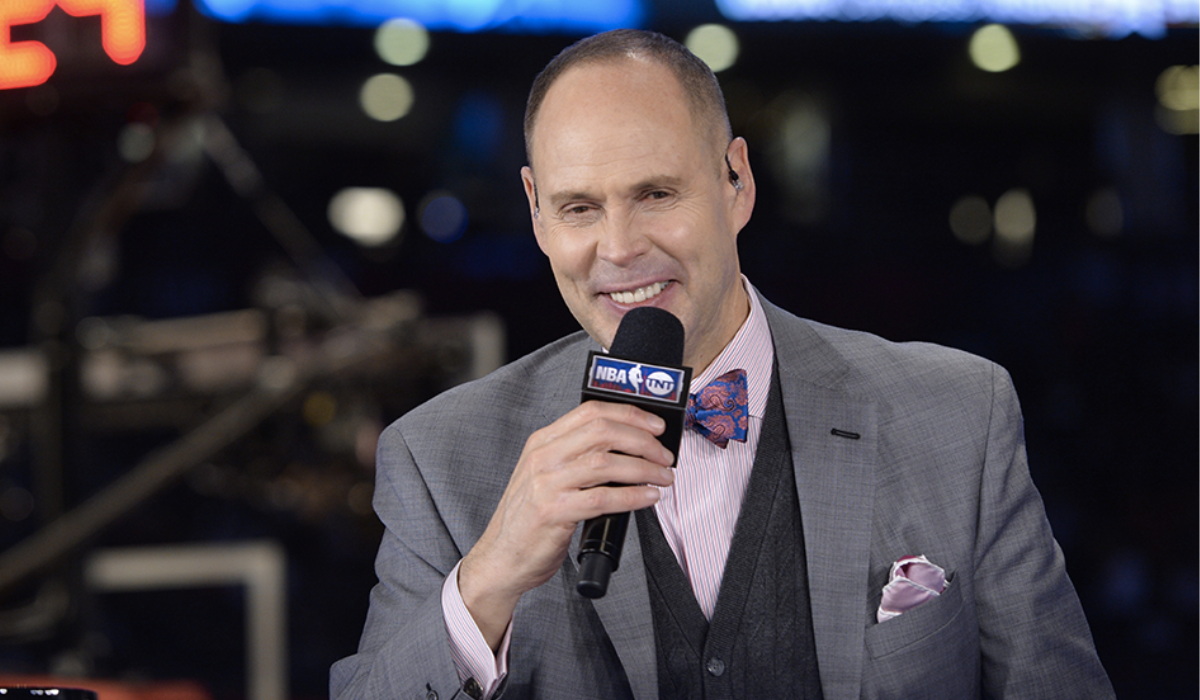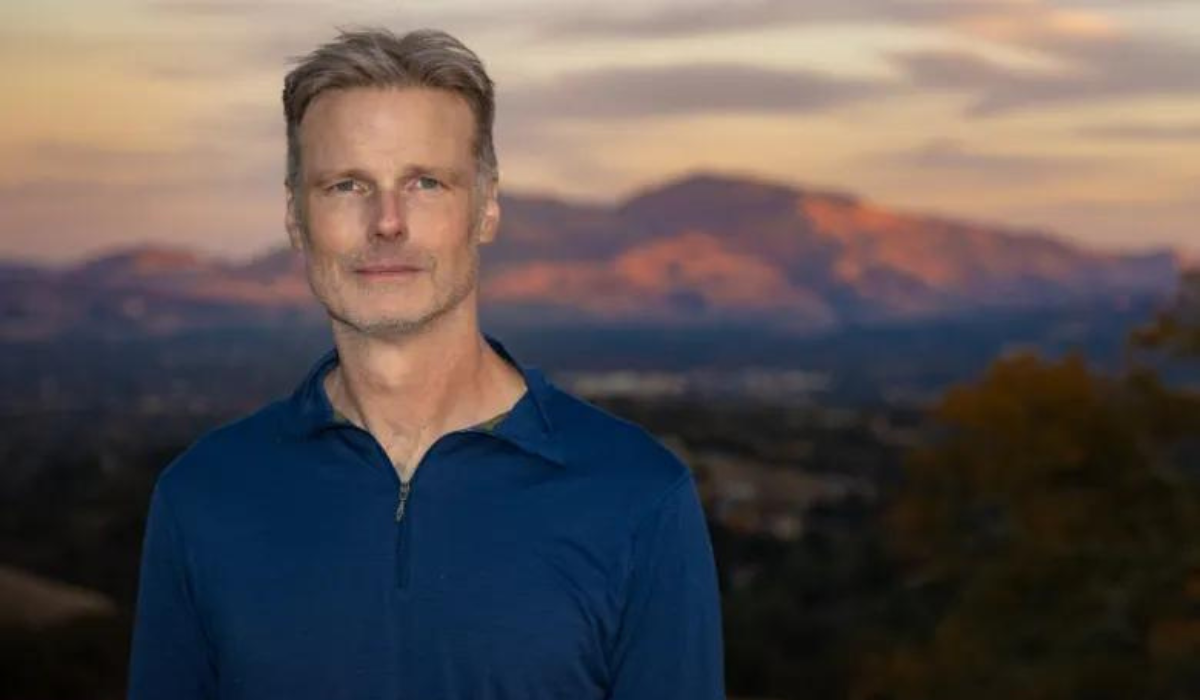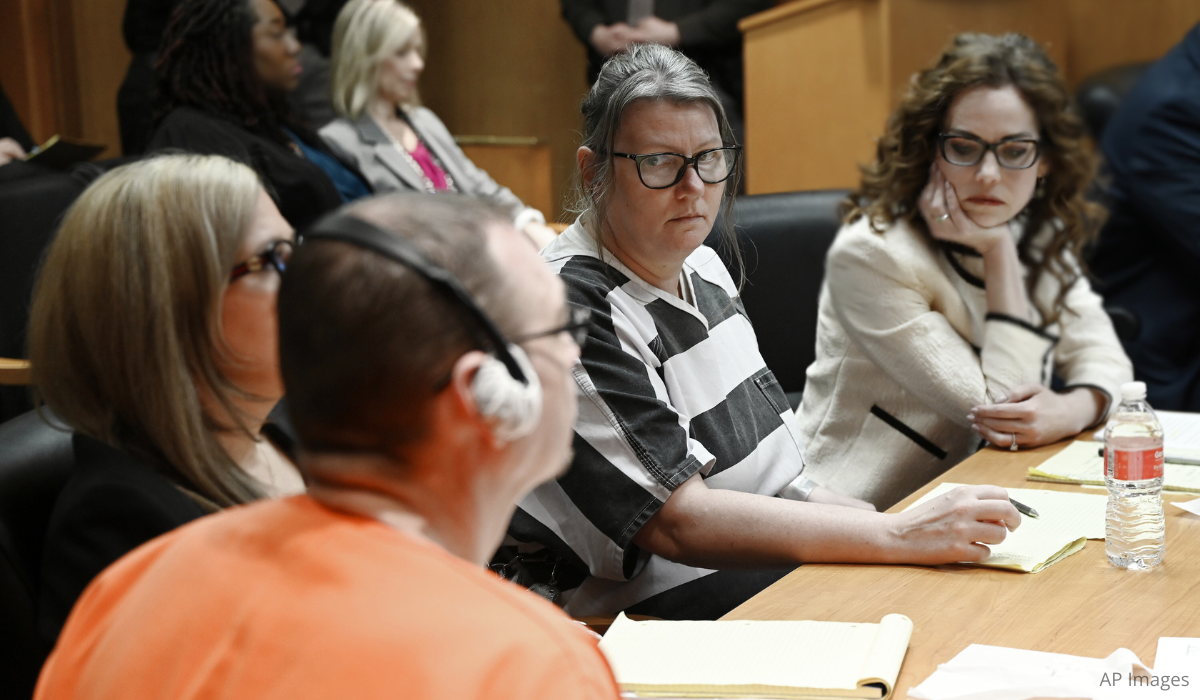Broadcaster Ernie Johnson on the Life-Changing Nature of Fatherhood and How His Own Dad Inspired Him to Be a Better Father and Human
Tell me about your dad.
Ernie Johnson Sr. was a major league baseball player in the 50s for the Milwaukee Braves. I was the youngest of three kids, born in 1956, which was a year before the Braves won the World Series.
When his playing days were over, he became a broadcaster. He was the voice of the Atlanta Braves for 30+ years.
I didn’t really consider him a famous father, but I considered myself pretty lucky that we got to go to all the games for free. I’d tag along with him to the ballpark as he was doing play by play for the games. He’d get there hours before each game so he could do his pre-interviews. I was always tagging along for that and I got to meet the baseball greats. It was a dream childhood. For a kid to be able to go to the ballpark any time he wanted to because that was his Dad’s job? Amazing.
When did you know you’d follow in your dad’s footsteps?
I wanted to be a baseball player like my dad. That was the goal. I always played through high school and played for a year at the University of Georgia. When CBS asked me to write a note to myself, I wondered who I should write it to? The 5-year-old me? The 30-year-old me? I landed on writing to that freshman who was thinking Hey, I might actually be a baseball player. That’s who I decided to write it to, to break the news that he’d be cut from the team and would need to find another path.
Both of my older sisters are teachers, and I told myself I could be an English teacher and baseball coach in high school. One of the things I loved about my dad is he never pushed me to be anything. He and my mom both were really encouraging of me finding my path—to see what was going to fire you up. So, I gave broadcasting a try at the college radio station at the University of Georgia and, as horrible as those early on-air experiences were (I have some old cassettes of my early radio stuff and it’s brutal!), once I got a taste of it, I was hooked. Then the question was: Can you take it from being on the radio in college to getting a real radio job to a TV job? And all of those things just fell into place.
What did the role of becoming a father mean to you?
Nothing prepares you for fatherhood. My wife, Cheryl, and I had been married for a couple years before we had our first child, Eric. Two years later, we had Maggie. After that it was like OK! You marry the girl of your dreams, you have a boy and a girl, and you’re set! But we were as far from set as you can be, as it turns out.
That’s right. You adopted four more children! Tell me about that.
I didn’t think Cheryl was serious when she suggested we adopt. I came home from work and she said, “You know what we need to do?” I was like, “Chicken or fish for dinner?” But no, she said, this wasn’t about dinner. Cheryl saw a story about kids in Romania who needed parents and after many discussions, Cheryl traveled to Bucharest. This was 1991; it wasn’t like everyone was toting cell phones around. We were trying to stay in contact as much as we could over the phone. It was an interesting time. Cheryl was in Romania for two months before she brought Michael home.
We adopted Michael, and a year later, we found out he had Duchenne muscular dystrophy—a disease for which there’s no cure. Our lives changed dramatically; we suddenly had a special needs child who’d need a lot of care. But our daughter, Maggie, continued to remind us that we told her we were going to bring home a girl from Romania. “And you came back with a boy!” she’d say. Two years after Michael came home, we adopted Carmen from Paraguay.
About 17 years later, we added Ashley and Allison to our family. We adopted these two half-sisters who were in foster care and had had more than a half dozen homes before they were 9 years old. They both have special needs, too. My wife had been a CEO of a nonprofit called Street Grace, which had been fighting child sex trafficking. Cheryl knew that a lot of young girls who age out of the foster system are easy prey for people in the sex trade world; they prey on kids who are out there on their own. So, we adopted Ashley and Allison and that is your basic family of six from a lot of different situations and backgrounds.
I tell people, “It’s a circus, but at least we get in free!”
Then they say, “Well, I doubt it’s been free!” And while they’d be right on that part, it’s been very rewarding for us. Cheryl and I have gotten more out of it than the kids have.
Michael passed away just eight months ago. How do you imagine Father’s Day will be different this year?
I don’t know how I’ll feel on Sunday. We just went through Cheryl’s first Mother’s day since Michael passed. It’s hard. There is nothing that prepares you for how you’re going to feel from one day to the next. Some days I’m great. Other days, I see one thing that reminds me of Michael and I’m a mess.
I’m a son who’s lost his father and a father who’s lost a son. Father’s Day has always been real special to me, and it’s still special when I think about my Dad. I still hear his voice every day.
What’s your best advice for other fathers out there?
I speak a lot to business folks, where I’m talking to both dads and moms. The first question I’m always asked is about finding work-home balance. How do I do that? Man, I don’t know! For a long time, I’d be the last guy to ask. I’d be the example of how not to be. We all go through that and try to find the right balance. When my dad was a broadcaster, he was always making speeches. When I’d ask my mom, “Where’s Dad tonight?” She’d say, “Oh, he’s out making a speech to dads about how they need to spend more time with their kids!”
I tell people all the time: You have to be intentional about spending time with your family. You can’t let your work life run amok; you have to find time, even if it’s a little bit of time. We all miss things our kids are doing because of our work responsibilities. But you have to realize the value of even just 10 minutes. Every bit of the time you spend counts.
The other thing I tell dads is this: You have to realize your kids have superpowers. They see and hear everything. They see how you react when you’re having a bad day, and how you act around your wife. And they’re taking mental notes all the time. You have to realize that you’re an example, all the time. It’s not an easy job being a dad, but man I love it. I always have. Even with the tough times that come with it.
Do you think your dad would have a message for you now?
I don’t know what the words would be, but when I talk about kids having superpowers I know that because that’s how I learned from my dad. He didn’t have to lecture me. I just watched him. I watched him live a life so rich and genuine, and he was so caring with other folks. And that’s what taught me.
I’ll never measure up to my dad, but I’m intentional about trying to get there. He was the best; every day I try to measure up. Then, there are certain things I’ve seen my kids do and I think, Maybe I’m doing this the right way.
And maybe Dad’s looking down at me saying, “Good job, son.”




